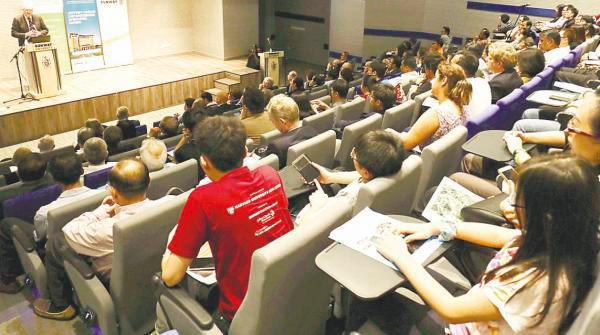A WORRISOME new norm, especially post-pandemic, is that students are whirled in a vicious circle of digital interfaces. They appear to be busy for nothing.
I surveyed undergraduate students at the International Islamic University Malaysia to assess their awareness of these challenges and solicit potential solutions.
The survey received 200 responses, with 124 female and 76 male participants. They were queried about methods educators can employ to enhance students’ classroom performance.
Four primary strategies surfaced from the feedback, identified as “major steps”.
Major steps
Moral support and motivation: Students expressed a desire for more than just academic guidance from their lecturers. They sought practical tips, tricks and moral support to face life’s challenges.
Like anyone else, students appreciate feedback that is positive and constructive as it fuels their drive to excel in their respective areas.
In today’s university environment, the relationship between lecturers and students is formal, lacking personal engagement in students’ lives. This can result in an artificial gap, restricting interactions solely to academic matters.
To counter this challenge, lecturers need to take proactive measures by offering holistic care in nurturing students.
Amid the escalating mental health crisis among young people, the need for emotional investment from teachers has become imperative. Classrooms must be safe and become healing spaces for students to learn and experience new things.
Engaging and enjoyable classroom environment: Students desire a fun-filled and engaging classroom atmosphere that is not overly serious or linear. They suggested class activities that are exciting and relevant to the topics taught as this can capture their attention and keep them curious. Incorporating enjoyable elements into the classroom can enhance memory, attention and motivation.
Sustained interaction: Many students emphasised the importance of interactive classes, where engagement and participation are encouraged through quizzes, questions and answers, group discussions and sharing of experiences.
Lecturers can promote proactive learning habits by assigning questions based on previously discussed materials, prompting students to establish study routines and actively engage with the content.
Inactive students also deserve the opportunity to express themselves even if it requires additional effort. Without such engagement, students may be physically present in class but mentally disengaged, eagerly awaiting its conclusion. In such instances, the classroom transforms into little more than a cage.
Enhanced explanation through real-life examples: Students expressed the need for lectures delivered at a manageable pace, complemented by illustrative, practical and real-life examples. The theories learned in classrooms should reflect real-world implications and issues of the community.
In conclusion, measures such as using supplemental resources and study tools, employing engaging presentation techniques, facilitating group discussions, incorporating real-world examples, utilising simple language and promoting a reading culture will help enhance the overall performance of university students.
Therefore, listening to students and actively considering their challenges and perspectives are essential to finding effective solutions to improve the learning experience.
The writer is an assistant professor of Islamic Jurisprudence at the International Islamic University Malaysia. Comments: letters@thesundaily.com









